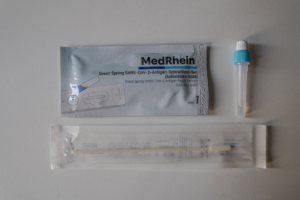
Skin-to-skin contact with your newborn — often called kangaroo mother care — has proven to be lifesaving for preterm or low-weight babies, according to a new study published in BMJ Global Health Journal.
The researchers, from India, studied 15,559 infants in a total of 31 trials. Some of the studies compared kangaroo mother care with conventional care, while other trials focused on early versus late kangaroo mother care with infants.
The study found that mortality in infants decreases when kangaroo mother care is implemented as soon as possible after birth:
“Compared to conventional care, kangaroo mother care seemed to reduce mortality by 32% within the first 28 days of life. The study also suggests that the benefits of kangaroo mother care are higher when it’s implemented within 24 hours of birth,” per The Washington Post.
Kangaroo mother care involves skin-to-skin contact with a warm blanket covering the infant while on the chest of the mother. The idea of skin-to-skin as being beneficial is not a new discovery; however, the amount of time needed to understand the benefits for the child was unknown.
Dr. Susan Crowe, a clinical associate professor of obstetrics and gynecology at Stanford School of Medicine, told Stanford Medicine Children’s Heath, “The skin-to-skin contact causes a release in oxytocin — known as the ‘love hormone’ — in the mom. It helps the uterus contract, which reduces bleeding, and also warms up the mother’s body, which comforts the baby and results in less crying and lower rates of hypoglycemia.”
For many preterm babies who are either ill or underweight, the standard procedures is to have them hooked up to heart monitors and breathing tubes while laying on warm blankets in incubators.
What the evidence of this research shows is that there is a greater survival rate for these infants if they are attached to their life-supporters while laying on the chest of their mother as opposed to being in the intensive care unit.
Following the impact of COVID-19, the World Health Organization implemented new guidelines that stressed the importance of skin-to-skin interaction for preterm babies as necessary for their survival.
Said Dr. Karen Edmond, medical officer for Newborn Health at WHO, “The first embrace with a parent is not only emotionally important, but also absolutely critical for improving chances of survival and health outcomes for small and premature babies.”
She continued, “Through COVID-19 times, we know that many women were unnecessarily separated from their babies, which could be catastrophic for the health of babies born early or small. These new guidelines stress the need to provide care for families and preterm babies together as a unit, and ensure parents get the best possible support through what is often a uniquely stressful and anxious time,”
About 1 in every 10 babies is born premature, according to the Centers for Disease Control and Prevention. Researchers of the BMJ study are hoping that this new finding on kangaroo mother care will be implemented in hospitals across the U.S. where low-weight and preterm babies have a concerning mortality rate.
Lori Feldman-Winter, a past chair of the American Academy of Pediatrics Section on Breastfeeding, told The Washington Post the finding provides members of the academy and others to consider clinical research that could help newborn intensive care units “to support exactly what this is saying — providing that kangaroo mother care within 24 hours and at least eight hours a day.”



